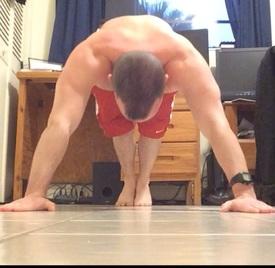Muscle Confusion

FrnkLft
Posts: 1,821 Member
I personally hate the idea of muscle confusion. I choose the exercises I use because they suit me best. I mean, I suppose it makes sense, but mostly from an intrisic standpoint, like the amount of "pump" (which is well proven to not affect anything althoug everybody loves it).
Can anyone help me sort the info, and give me some barebones reference for whether or not muscle confusion is important? I'm concerned with strength gains, as well as hypertrophy.
Can anyone help me sort the info, and give me some barebones reference for whether or not muscle confusion is important? I'm concerned with strength gains, as well as hypertrophy.
0
Replies
-
I think you've got the right instincts. Here's Mark Rippetoe's answer:
"They lose sight of the fact that "muscle confusion" is a rather odd concept, and that doing dozens of different exercises actually prevents productive training for strength acquisition. "
http://www.t-nation.com/free_online_article/most_recent/rippetoe_throws_down&cr=0 -
I just show them some calculus or particle physics. They don't understand any of that *kitten* so it keeps them confused.0
-
I started harlem shaking in the squat rack because my muscles were confused.0
-
I personally hate the idea of muscle confusion. I choose the exercises I use because they suit me best. I mean, I suppose it makes sense, but mostly from an intrisic standpoint, like the amount of "pump" (which is well proven to not affect anything althoug everybody loves it).
Can anyone help me sort the info, and give me some barebones reference for whether or not muscle confusion is important? I'm concerned with strength gains, as well as hypertrophy.
It's not important at all. Aside from what everybody else already posted, it's a concept that somebody developed to help people think that exercise is only good if you're sweating and sore as **** immediately after EVERY single exercise session. It's actually not good to be sore all the time, soreness indicates your body was unable to adapt to the exercise you just did. The only way you get stronger is by your body adapting to the exercise. The first time you do it you should be sore, next time a little less, next time a little less and so-on and along the way you're also getting stronger.0 -
I have come to suspect that "muscle confusion" is an oversimplified term used to explain a complicated process of physiology that most people don't know and/or don't have time/interest in learning.
But it seems to me the benefit of varying up exercises is more about just having the muscle activated in a little different way? What fitness gurus describe as "hitting it at different angles" and what not? And I've wondered if concern over muscle confusion is probably more relevant to isolated exercises and smaller muscle groups where the motion of the exercise is not going to have much variance, as opposed to compound exercises?0 -
I have come to suspect that "muscle confusion" is an oversimplified term used to explain a complicated process of physiology that most people don't know and/or don't have time/interest in learning.
But it seems to me the benefit of varying up exercises is more about just having the muscle activated in a little different way? What fitness gurus describe as "hitting it at different angles" and what not? And I've wondered if concern over muscle confusion is probably more relevant to isolated exercises and smaller muscle groups where the motion of the exercise is not going to have much variance, as opposed to compound exercises?
Your first statement is pretty much 100% on-point, people don't understand the process of strength adaptation and they think that being sore is progress and that if you're not sore you're not making progress which of course is totally *kitten*-backwards. Yes, you do need to change things up along the way, but not every workout and definitely not every week. I believe Louie Simmons indicated that you should change your assistance work up ever 4 to 6 weeks. Wendler said something like do it for at least one complete 5/3/1 cycle (4 weeks in the old 5/3/1, 6 weeks in his new book).0
This discussion has been closed.




